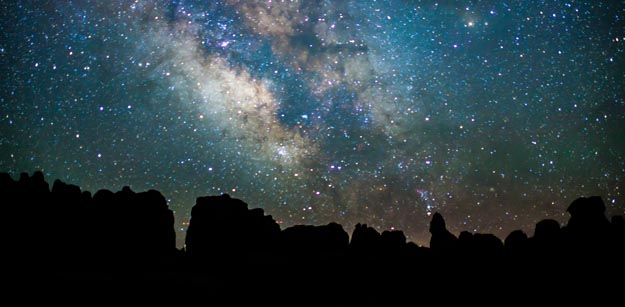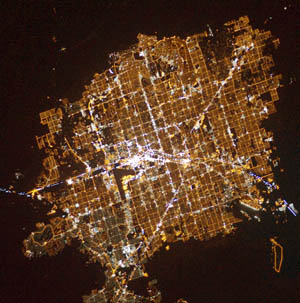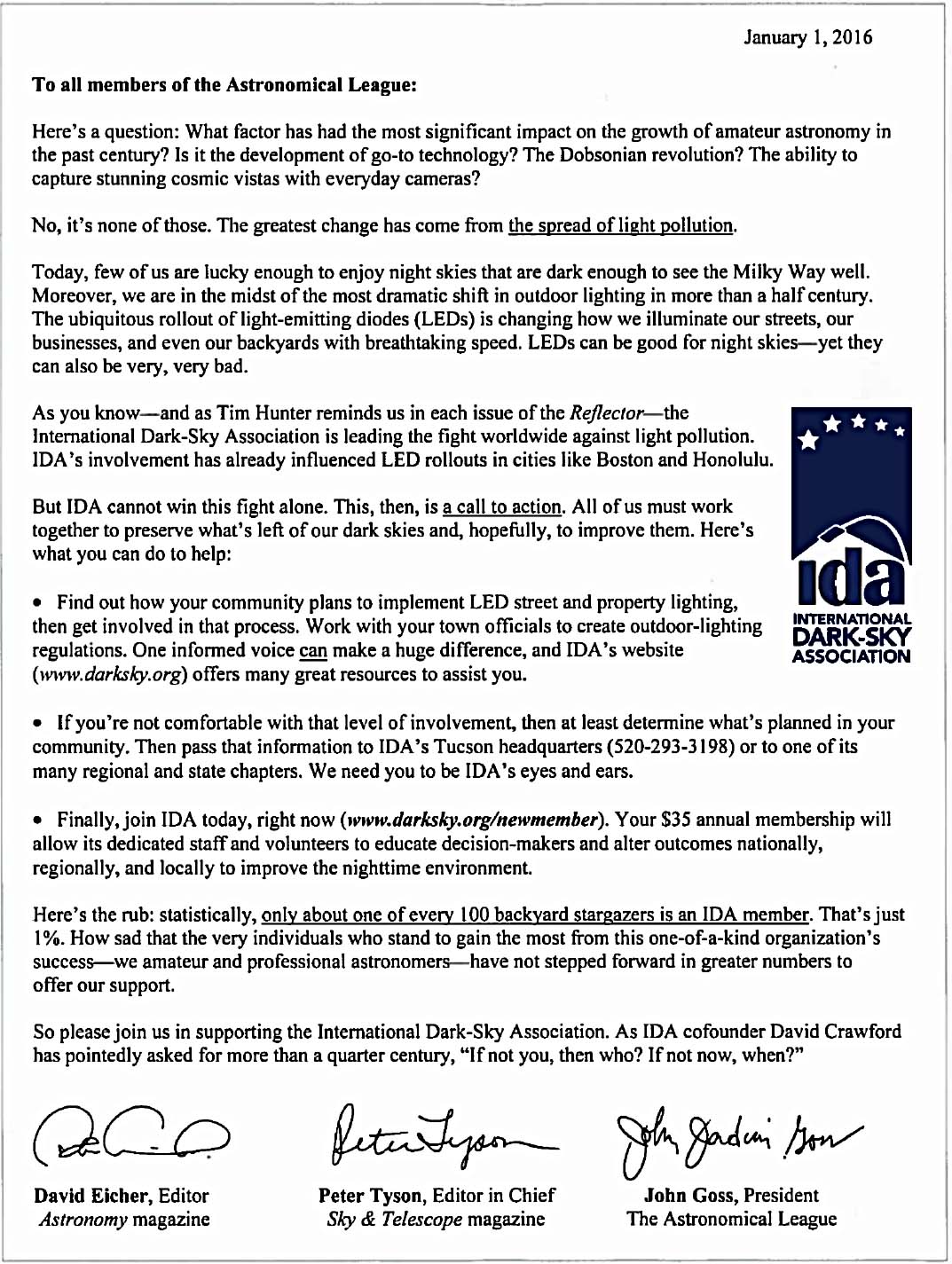It's high time that we amateur astronomers got serious about protecting the night sky from light pollution.

NPS / Emily Ogden
Ten years ago I took a three-week canoe trip down the Green River in Utah, right through the heart of Canyonlands National Park. During the day, stunning canyon scenery all around me. At night, unbelievably dark skies overhead.
As I paddled down that winding river, with sheer cliffs of Jurassic sandstone and other colorful sedimentary rock rising on either side, I couldn’t help thanking those early conservationists who’d had the foresight to protect unique wilderness lands like Canyonlands. If they hadn’t safeguarded it, who knows what would have become of that gorgeous red-rock landscape?
In the same way, I was delighted when I learned last year that Canyonlands had become an International Dark-Sky Park. It was one of 17 Dark Sky Places established in 2015 alone by the International Dark-Sky Association. The IDA has helped establish five dozen such locales around the world – a spectacular achievement – and more are in the pipeline for certification.

Again, I can’t help but think, if not for the visionaries at IDA, who will champion and preserve our dark skies? One look at a typical NASA satellite image of the U.S. at night (or any other highly populated part of our planet) shows that the IDA isn’t kidding when it declares on its website, “Millions of children will never see the Milky Way.”
Do we really want to let that happen? If you’re not already a member, I urge you to join the IDA (it’s only $35) and help lead the fight against light pollution. The only way to conserve dark sites is through proper lighting policies and public education – the kind of work the IDA does every day.
And keeping dark sites dark will not just help amateur astronomers, it will help wildlife. Did you know that the IDA is deeply involved, for example, in sea turtle conservation?
Sky & Telescope, by the way, has supported the IDA since its inception in 1988, and we regularly run articles on the subject of light pollution. These include “Surveying Skyglow," our cover story in May 2015, which details how night-sky measurements by amateur astronomers are needed to help researchers track light pollution's many deleterious effects.
As a gauge of the concern we all should share about this problem, I encourage you to read the letter below co-signed by Dave Eicher, editor of Astronomy magazine; John Goss, president of the Astronomical League (AL); and yours truly. It just appeared in the March 2016 issue of The Reflector, the League’s journal. The letter explains how greatly your participation is needed to help ensure that dark skies everywhere — like those seen in Canyonlands National Park or from our own backyards — remain that way for us, our children, and generations to come.
Thank you in advance for supporting the IDA.

 4
4
Comments
Anthony Barreiro
March 4, 2016 at 7:55 pm
Thanks Peter. I am proud to be a member of the International Dark Sky Association. I would add a couple of points --
Light pollution doesn't harm only wildlife. Research is giving us a growing body of evidence that nighttime light pollution has a negative effect on human health, contributing to everything from insomnia to high blood pressure, diabetes, and cancer.
Unlike every other form of pollution, light pollution does not persist in the environment. The moment we turn off the switch, light pollution disappears.
You must be logged in to post a comment.
March 6, 2016 at 12:49 pm
I see really bright LED street lights being installed in my NYC neighborhood... that cannot be a good thing.
You must be logged in to post a comment.
Frank-ReedNavigation.com
March 7, 2016 at 4:15 pm
The International Dark-Sky Association, like all charitable organizations, is required to post its budget publicly via their IRS form 990. Their total revenue in 2014 (fiscal year) was $531,000. Total expense on employee salaries and benefits was $341,000. That's 64% --not especially good. Compensation to two officers amounts to $118,000 or 22% of revenues. Details: http://darksky.org/about/funding/.
I realize that Sky & Telescope's long-time senior editor, and skilled science journalist, Kelly Beatty is an officer of he IDA (an uncompensated officer!). Perhaps you could explain what the IDA is doing to improve its performance? If I donate $35 to the IDA, by the numbers above, $22 will go to salaries and compensation. Also worth considering is that $4.20 from that same amount would go to Malibu and Sea Turtles (two separate programs). Should we rejoice that those living along "the world's most expensive sandbox" (Malibu's beachfront) may have dark skies for a few more years??
Frank Reed
You must be logged in to post a comment.
J. Kelly Beatty
March 7, 2016 at 4:57 pm
hi, Frank... I'm trying to understand the source of your discontent. IDA has five full-time employees (plus a part-time website manager). Aside from the executive director, those staffers spend their time — to a first approximation — (1) managing the Fixture Seal of Approval program for testing and certifying quality outdoor-lighting products; (2) managing the Dark Sky Places program and vetting dozens of worthy candidates; (3) managing IDA's communications and support/outreach materials for the hundreds who ask for help with local light-pollution problems; and (4) managing membership and smaller projects. It's a service-oriented organization — what non-salary "products" would you imagine that IDA ought to be providing?
and, in case you're curious, all members of the Board of Directors are volunteers; none of us are compensated in any way.
You must be logged in to post a comment.
You must be logged in to post a comment.